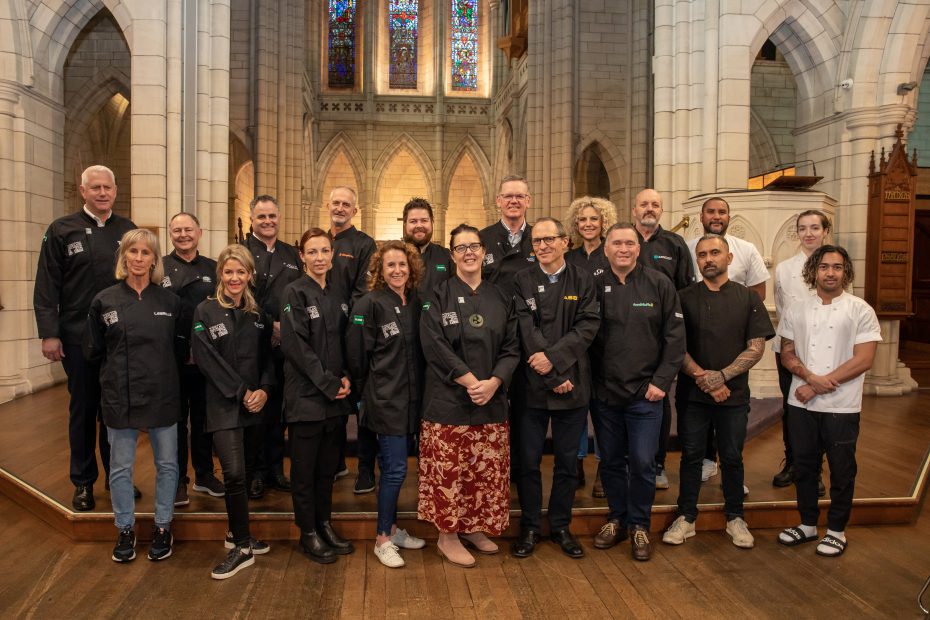When a customer takes a look into a fancy and renown restaurant, they see perfectly set tables with crisp clean linen, smiling waiters, subtle music and wonderful menus with mouth-watering specialities – as they should!
But what they don’t see is the huge amount of work that any manager needs to put in so that the restaurant looks and operate that way. Getting a restaurant kitchen into good shape takes, experience, hard work and nerves made of steel.
Those who manage and/or own restaurants know very well how challenging it can be to turn the restaurant
kitchen into a superb workplace that people love.
You have to deal with workplace hygiene, many laws and regulations that deal with food serving, different customer-related issues, menu updates and also any issues that arise between employees.
Sounds like too much? It might sound that way, but a career in the food and beverage industry is also very rewarding and quite exciting.
Let’s break down these challenges and see how you can work on them to make your restaurant more efficient and a more pleasant workplace for your employees.
Challenges People Working in the Kitchen Face
There is much more to working in the kitchen than simply cooking and making sure you have your flawless chef apron on. Managing a kitchen requires strong people skills if you want it to work well. Here are some of the things that you might have noticed yourself, but haven’t really looked into that much.
You may notice that the majority of issues that occur in restaurant kitchens are actually caused by employee frustration of some kind. These further causes work-related stress that you have to fight off with any means necessary.
If you diligently work on eliminating these causes, you have a much better chance at organising a smoothly functioning restaurant.
Imperfectly Assigned Workload
It is a common occurrence that people who are hired to do the same job do it at a different level. New employees in the kitchen may cause more damage than good until they figure out how things are done. They need appropriate on the job training.
Surely, somebody who is a trained chef will know how to cut onions, but will they always know where to leave the knife they used after cutting them? Probably not.
Every kitchen is unique when it comes to simple everyday tasks and procedures. If you assign crucial roles in your kitchen to people who have just been hired, you will cause them to be frustrated, senior workers to feel as if they have been passed by and the overall kitchen operation to be slowed down.
On the other hand, if you overburden the experienced workers with all the tasks just because they are good at it, they may become frustrated to be paid the same amount of money as people who are not able to do that same job equally well. This is just contrary to your efforts to eliminate workplace stressors.
Faulty Information Flow
One of the surest ways to get somebody to feel frustrated and irritated at their workplace is to never give them timely information about what needs to be done and when. This can easily happen in the kitchen because the information flow is tremendous!
There are always new orders coming in, you always have to be working, thinking about the next thing to do and do it without getting in anybody’s way, but still do it in time. The meal can never go cold! Kitchen employees need to know what’s coming in and what needs to be thrown out, who is coming to work and who called in sick.
Trying to multitask all the time and keep so much information in your head can cause stress and frustration. Take a look at this quote from Workplace Wellness Systems:
MULTITASKING KILLS! It’s estimated that multitasking causes a 40% productivity drop, with 50% more mistake’s made! pic.twitter.com/JItHXbSuCc
— BrainWorkshops (@BrainWorkshops) March 11, 2017
Forget Multi-Tasking – It’s All About Mono-tasking, Say Stanford Researchers https://t.co/mdMplyoWRT by @bigthink pic.twitter.com/qaswJNkILC
— Big Think (@bigthink) January 4, 2017
Therefore, if you don’t have a good communication system in your kitchen, people will start making more and more mistakes even when doing things they normally do very well. Therefore, without a proper information flow, you have a real recipe for disaster.
No Positive Feedback
This abundant information load leaves little time for redundant talk. Unfortunately, we are keen to leave out praise from our communication, perceiving it is the least necessary part of the message we want to send. Moreover, we are more likely to criticise wrong moves to prevent them from happening again, as a form of “damage control” than to praise good work.
An article from Harvard Review analyses the results of research in which different team members were asked to give positive and negative feedback to other team members in different rations. Here is an interesting quote:
Bad Workplace Conditions
Nobody is motivated to do their best if their workplace is not clean and sanitary. Moreover, if your kitchen is unsanitary and badly equipped, you will not only have to deal with low employee productivity, but you will also potentially need to risk fines.
Kitchens need to be spotless, uniforms and linen need to be crisp clean and presentable. Before anything else, a kitchen that is not designed to allow proper workflow in a kitchen in which your chefs and other staff bumps into each other, spill food and get incredibly frustrated. Here are some basics of commercial kitchen design:
Steps that Take You to Improvement
Once you have identified these issues, your job is halfway done! It is much easier to solve a problem when you know what needs solving. Here are some steps that you can take today and improve your restaurant business by creating a better working environment and improving your employee well-being.
Assign Tasks Based on Employee Skills and Experience
If you don’t want your employees to do a bad job, don’t ask them to do things they don’t know how to do. That’s easy to say, but how to put this into practice? There’s still work to be done and who’s going to do it?
Your employees will but in time. First, you need to do your best at Performance Management.
You need to assign tasks based on the employee skills, abilities and performance. However, you also need to set up Personal Improvement Plans for those that are in your kitchen to stay.
Organise training, practice, shadowing and other techniques that will give your new employees a chance to hone their skills and your seasoned employees a chance to get some help and take some workload off their shoulders.
Create Uninterrupted Information Flow
Avoid the misunderstandings and make sure that your employees always have relevant information in a timely manner. Pick one place in your restaurant kitchen where all the relevant information will be displayed at all times, for everybody to see.
In that way, your employees will not be forced to keep all that data in their heads. That will result in:
- Less stress and frustration
- More focus and productivity
- Fewer misunderstandings
- Better overall information and workflow
Promote Good Work Ethic and Workplace Culture
Good work ethic and workplace culture are definitely key points to employee satisfaction and good restaurant business. In order to improve on these, you need to set some workplace rules and ask everybody to stick to them.
Restaurant Association of New Zealand published an article with the following tips about establishing workplace rules:
Make the Kitchen Clean and Comfortable to Work in
By making kitchen amazing, clean, efficient and well-designed, you’ll improve employee satisfaction. This directly translates to more productivity and overall more efficient restaurant and deals with the employee dissatisfaction about the work conditions. The following is a scheme of a kitchen from a chef’s point of view which may help you make the kitchen more efficient.
However, you can make your job a lot easier if you hire professionals to deal with the part of work that you should not be wasting your time on – uniforms, linen, workplace washrooms and similar details. Alsco can take care of those!
We are a managed rental service and we can have all your uniforms and linen cleaned, washed and delivered for your workers anytime you need them. You’ll only be paying an annual fee that we’ll agree on. To get the best deal tailored for your restaurant, call Alsco now and ask for your best quote.
Photo Courtesy of Flickr Image by Ralph Daily


